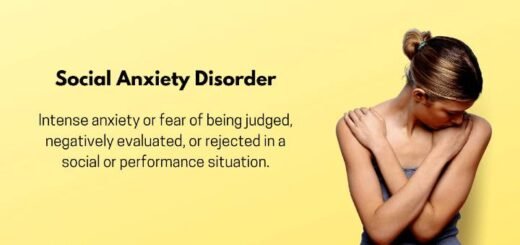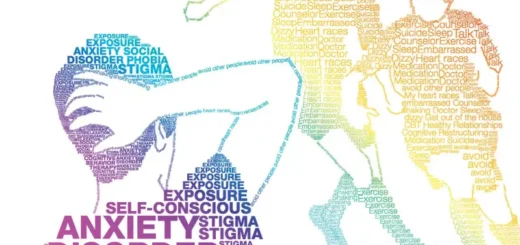Tailored CBT Approaches for Social Phobia in New Zealand
In New Zealand, mental health challenges such as social phobia are increasingly recognized, prompting the need for tailored cognitive behavioral approaches that resonate with local experiences. Social phobia, characterized by intense fear and avoidance of social situations, affects many Kiwis and can significantly hinder daily functioning. By utilizing culturally relevant techniques and strategies, mental health professionals are better equipped to address the unique needs of individuals grappling with this condition.
Real-life applications of these cognitive behavioral approaches offer valuable insights into effective management and support for those with social phobia. For instance, case studies in the New Zealand context highlight successful interventions and coping mechanisms that empower individuals to reclaim their social lives. To explore these practical insights further, visit Social Phobia Case Studies that illustrate meaningful transformations within the Kiwi community.
Understanding Tailored Cognitive Behavioral Approaches
Cognitive Behavioral Therapy (CBT) is a well-established psychological treatment that helps individuals identify and change unhelpful cognitive distortions and behaviors. Tailored cognitive behavioral approaches take this a step further by customizing the therapy to meet the specific needs of an individual. This personalization is especially relevant in the context of New Zealand, where cultural diversity and unique societal factors can influence mental health outcomes. By understanding the individual’s background and experiences, therapists can create a more effective treatment plan that resonates with the patient.
In New Zealand, where social phobia is a common issue, tailored CBT can address specific triggers and social contexts that are unique to New Zealanders. For instance, therapy can incorporate local social norms and cultural practices, making the therapeutic process more relatable. This personalized approach can significantly enhance the effectiveness of CBT, especially for individuals suffering from social phobia.
Real-Life Applications of Tailored CBT in New Zealand
In New Zealand, therapists are increasingly applying tailored cognitive behavioral approaches to address various mental health issues, including social phobia. For example, a therapist might work with a client who experiences anxiety in social situations, such as attending gatherings or engaging in community events. By understanding the client’s specific fears and triggers, the therapist can design exposure exercises that gradually introduce the individual to these situations.
One effective technique is to use role-playing scenarios that mimic real-life social interactions within the context of New Zealand culture. This could involve practicing greetings or small talk at a local café or community event. Such tailored practices allow clients to become familiar with social cues and expectations, thereby reducing anxiety and building confidence in social settings.
Cultural Considerations in Tailored CBT
New Zealand is home to a diverse population, including Māori, Pasifika, and immigrant communities, each with unique cultural values and beliefs. Tailored CBT must consider these cultural factors to be truly effective. For instance, Māori concepts of well-being, such as Te Whare Tapa Whā, which emphasizes the importance of social, mental, physical, and spiritual health, can be integrated into the therapeutic process.
By respecting and incorporating cultural practices, therapists can build trust and rapport with clients, making them more likely to engage in the treatment process. This is particularly important for those dealing with social phobia, where cultural anxiety can play a role. Understanding the community dynamics and social expectations can help provide a more comprehensive treatment plan that addresses not only the psychological aspects but also the cultural elements of social phobia.
Utilizing Technology in Tailored CBT
The rise of digital health solutions has opened new avenues for tailored cognitive behavioral approaches in New Zealand. Online CBT programs and mobile applications can provide accessible resources for individuals dealing with social phobia. These tools allow users to work at their own pace and revisit concepts as needed, making therapy more flexible.
For example, a mobile app designed for New Zealanders could feature culturally relevant scenarios and exercises that help individuals practice social interactions in a safe environment. Moreover, online forums and support groups can foster a sense of community and shared experience, which is vital for those struggling with social phobia. By integrating technology into tailored CBT, therapists can reach a broader audience and provide support that is both convenient and culturally appropriate.
Community Support and Resources
In New Zealand, community support plays a critical role in mental health treatment. Organizations such as Social Phobia provide resources, support groups, and educational materials that can complement tailored CBT. These resources can help individuals understand their condition better and connect with others who share similar experiences.
Engaging with community support can significantly enhance the therapeutic process. For instance, attending support groups allows individuals to practice social skills in a safe environment while receiving encouragement from peers. Therapists can recommend local community events or workshops that focus on social skills development, which can further assist clients in overcoming their social phobia.
Case Studies: Successful Applications of Tailored CBT
Several case studies illustrate the effectiveness of tailored cognitive behavioral approaches in New Zealand. One notable example involved a young adult who experienced severe anxiety in social situations, which was exacerbated by cultural expectations. The therapist worked with the client to identify specific fears and then created a personalized plan that included gradual exposure to social settings, role-playing, and cognitive restructuring.
Over several months, the client reported significant improvements in their ability to engage in social situations, ultimately leading to increased participation in community events and gatherings. Such success stories highlight the importance of a tailored approach that considers individual experiences, cultural backgrounds, and specific triggers associated with social phobia.
Future Directions for Tailored Cognitive Behavioral Approaches
The future of tailored cognitive behavioral approaches in New Zealand looks promising, especially with ongoing research and advancements in mental health care. As awareness of mental health issues continues to grow, there is a greater emphasis on personalized treatment plans that cater to individual needs.
Incorporating feedback from clients and adapting therapy based on their experiences will be crucial in enhancing the effectiveness of CBT. Furthermore, increasing collaboration among mental health professionals, community organizations, and educational institutions can lead to more comprehensive support systems for individuals with social phobia. By continually refining these tailored approaches, New Zealand can pave the way for improved mental health outcomes for its diverse population.
FAQs
What are tailored cognitive behavioral approaches?
Tailored cognitive behavioral approaches refer to customized therapeutic strategies that adapt standard cognitive behavioral therapy (CBT) techniques to meet the specific needs and contexts of individual clients. This personalization can enhance the effectiveness of the treatment, especially for conditions like social phobia_1, where individual triggers and experiences can vary widely.
How do these approaches apply to social phobia_1 in New Zealand?
In New Zealand, tailored cognitive behavioral approaches for social phobia_1 can involve understanding the unique cultural, social, and environmental factors that influence an individual’s experience of anxiety in social situations. Therapists may incorporate local cultural practices, community values, and lifestyle factors into their treatment plans to provide more relevant and effective support.
What are some real-life applications of these approaches in New Zealand?
Real-life applications in New Zealand might include group therapy sessions that focus on community engagement, workshops that utilize local social norms to build confidence, and individualized counseling that addresses specific social situations relevant to New Zealand’s diverse population, such as public speaking in local community events or navigating social gatherings.
Who can benefit from tailored cognitive behavioral approaches?
Individuals suffering from various anxiety disorders, particularly social phobia_1, can benefit significantly from these tailored approaches. This includes adolescents, adults, and even seniors who face challenges in social interactions, helping them to develop coping strategies that are more effective in their specific cultural and social contexts.
What role do therapists play in implementing these tailored approaches?
Therapists play a crucial role in implementing tailored cognitive behavioral approaches by assessing the individual’s specific challenges, understanding their cultural background, and designing a personalized treatment plan. They facilitate a safe environment for clients to explore their fears related to social phobia_1 and practice new coping strategies in real-world situations.
Are there any resources available in New Zealand for people with social phobia_1?
Yes, there are various resources available in New Zealand for individuals dealing with social phobia_1. These include mental health services, community support groups, online therapy options, and educational workshops focused on anxiety management, all designed to provide support and practical strategies for overcoming social anxiety.
How can someone start using tailored cognitive behavioral approaches to address their social phobia_1?
To start using tailored cognitive behavioral approaches, individuals can seek a qualified mental health professional who specializes in this area. They should discuss their specific experiences with social phobia_1 during the initial consultations, allowing the therapist to create a customized treatment plan that aligns with their personal goals and cultural background.
References
- Social Anxiety New Zealand – This website provides resources and support for individuals dealing with social anxiety, incorporating cognitive behavioral techniques tailored to the New Zealand context.
- New Zealand Psychological Society – The NZ Psychological Society offers insights and research on various psychological approaches, including tailored cognitive behavioral strategies relevant to New Zealanders.
- Ministry of Health New Zealand – The official health government site provides guidelines and resources on mental health services, including the application of cognitive behavioral therapy in local settings.
- The Lowdown – This website focuses on youth mental health in New Zealand, offering tailored cognitive behavioral resources and support for young people facing mental health challenges.
- Mental Health Awareness Week New Zealand – MHAW promotes mental health awareness and provides resources that include cognitive behavioral approaches adapted to the New Zealand cultural environment.




